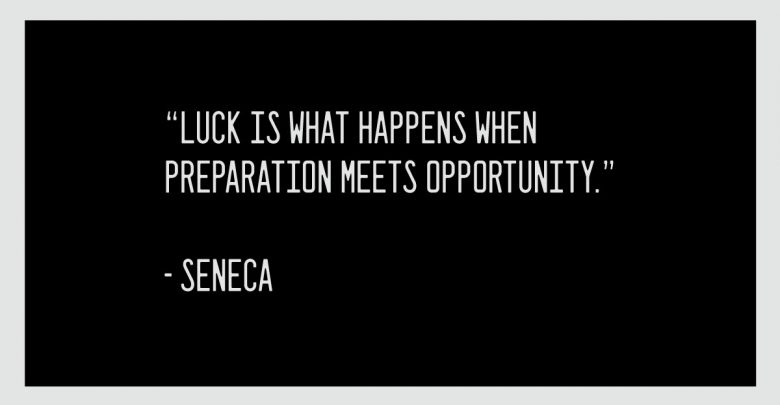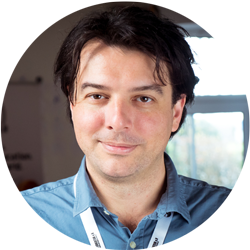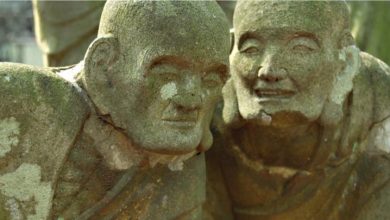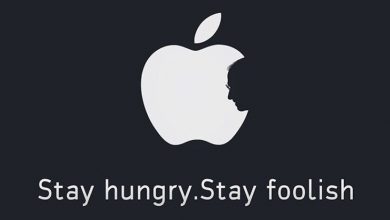Being lucky to learn and grow

Why did I choose this tool?
For the writing of this article, I decided to do wider and longer research. I read some subject-related and non-related books and articles. I spoke with lots of colleagues during seminars and with some colleagues in my team. I observed different workshops and different kind of approaches. All of that has triggered different reflections. My own reflections. Everyone has their own. I decided to document the process of how I challenge myself and how I dare and allow to be challenged. I believe that each one of us should be aware of their own process of challenging. This will enable us to be better learners, to utilize our talents more, to be more aware and effective in the things we do, professionally and personally.
“Luck is what happens when preparation meets opportunity” is how my dear friend and colleague Antonio opened his workshop on the training course “Train the trainers – It’s up to me 6”. He addressed the participants while highlighting the need for detailed preparation and how it impacts the outcomes of our personal performance. What does it mean when people say – you are lucky!?

He continued – the more you prepare and know your audience, the better you can tailor the program and address their needs. That is why we should read all the applications from our participants so we can learn who they are even before they arrive at the training, I said to myself. We can also make surveys, exchange emails, and make skype calls to even get to know them better. It will make our course better.
Antonio pointed out that in order to prepare, we need to visit the seminar room, to see its shape, the natural or artificial light in the room, the access of fresh air, if there is a projector or not and where it is placed, and also to look for a whiteboard and markers. You know, the basic stuff. Having all this information in mind, next time you are presented with the opportunity to hold a workshop, you will be more effective, foresee all these things and your performance will be much better. If you know that there is not enough natural light in the room, you will need more body movement methods for the participants to keep active and focused. Late in the evenings, I can use candles, nice instrumental music on low volume to spark reflection from your participants while they journal.
As I was drifting slowly into a reflection mode during that workshop, I got to thinking about how I can learn to do things better and then I just need to wait for the right opportunity to do so. Readiness meets opportunity.
How do we increase our capacity? How do we become more effective in what we do, personally and professionally? How to get better in doing things we are not good at, so we can say we are implementing what we have learned and not just being someone who knows theoretically how something should be done.
In Stephen Covey’s book – The seven habits of highly effective people, he says “Begin with the end in mind”. He quotes Oliver Wendell Holmes – “What lies before us and what lies behind us, are tiny matters, compared with what lies within us”.
More reflections can be found by Covey himself on the following video:
Begin with the end in mind
When you think of your personal limitations, what comes to your mind? How can I have better work-life balance? How can I be more compassionate with the participants? How can I talk less and say more? How can I be more tolerant and open-minded in disagreements? How can I be a better teammate or a leader? How can I be more risk-aware?
It is not so easy to change. It sounds like a big undertaking. It is not easy to get out of my comfort zone.
But if I set my mind to it, how can I challenge and I dare myself to improve?
I take an approach to the basic principle of a complex problem solving – break the problem on smaller pieces. Let’s say I want to build my own house. On first thought it seems impossible – I cannot do that, I don’t know how to build a house. But, when you spend some time analyzing and committing to it, you might conclude that it is not rocket science and it is possible. You break it down on smaller parts and identify the limitations – I will get the building materials myself, get workers from a construction company, I will make the design together with the architect. I don’t need to become a plumber or a designer in order to make good decisions regarding the construction of the house, even the construction companies don’t make the cement or pipes themselves. I do need to have the right network of people, resources, information and know how to do it. In short, I could potentially do it (build my own house) if I set my mind to it.

In the book Homo Deus, the author Harari says that in modern societies the learning process is not only consisted on how to do the things yourself, but also how to understand the processes and make sound decisions. Artificial intelligence (calculator, phone, computer) does so many things for us today, things that we don’t know how to do ourselves. A carmaker doesn’t produce and assemble all the 20.000 parts himself, but he is specialized in some and the others are outsourced. We need to focus on understanding the information that comes to us, the processes and to make sound decisions.
So, how do we dare and get challenged? How do we increase our competences and capacity? How do we change unwanted patterns? What is the process of doing it?
With my dear friend Markus, we were reflecting on the topic and he helped me realize my own process. Everyone has their own process, and it is important to know it. I will share my process in terms of daring to improve a personal and professional competence. These steps can be used for different spheres of life and everyone can adjust them to their own situation, values, preferences. Here is what I came out with:
- Identify concrete areas where I want to improve and acknowledge my limitations
My work/life balance has not been good these last few years. I am not good at work-life balancing and I want to get better.
2. Identify my current process:
-
-
- How does it make me feel?
-
For some time I feel overwhelmed by working too much. I feel like I need to take more vacation. But, to have more vacation time, I would need a more stable organization. I feel responsible as a leader of the organization and I have to estimate how it will affect everyone else.
2. How it makes other people feel?
Other people are concerned about my health because of the workload and the challenges I undertake. At the same time they are supportive of my professional undertakings and growth. They all (colleagues, friends, family) support me in working less and taking more vacation time.
3. What kind of effect it has?
I am sometimes overwhelmed and I need to rest more, so I don’t participate in social activities and gatherings as much as I want. My professional decisions are sometimes influenced by this overwhelming feeling, sometimes too quick or not contemplated enough. I often make mistakes when I feel like that.
3. Compare and analyze
– What are you doing wrong?
a. I take on too many projects.
b. I underestimate the work and energy needed.
c. I get carried away because it is so interesting.
d. I don’t plan a vacation as passionately as I make a work-plan.
e. I don’t invest as much time to become passionate.
– How it should be done right?
a. I will say no to some tasks. I need to have a concrete limit and respect it.
b. I will take more time to assess how much time and energy is needed and then make a decision.
c. I will be more aware not to get carried away next time.
d. I will dedicate more time to plan a vacation – talk to people, see videos, read articles.
e. Less work will give me more time.
– Identify the future process:
a. How will it make you feel?
I will feel more rested and mindful, balanced. My decisions will be more sound. I would be more effective and have additional energy for working on my personal things, vacation, gatherings, passions.
b. How will it make other people feel?
They will be happy for me. The colleagues would appreciate the improved leadership. My friends and family would appreciate spending more quality and quantity time with them.
c. What will be the effects from it?
Fewer mistakes, higher effectiveness in terms of professional life. Less time and energy needed.
More time and experiences, increased satisfaction of life and work.
4. Get(be) ready

Contextual preparation – I need to get ready for the time when the opportunity will come – to figure out the details, allocate resources, get other people to do it with you, to set the timelines, to set support processes.
Emotional readiness when the right time comes – I need to have the right mindset and attitude when the opportunity will present itself. To grab that opportunity when it presents itself. To have the self-confidence that I can do it. To accept that I might fail and I will need to do it again until I become good at it. To be ready and wait.
5. Envision and dare
– Which are the situations when I make decisions and when will I be able to do it better?
Next application deadline when I submit new projects, next planning process with my team, next planning of revenues of the organization, next yearly planning, next time a colleague calls and offers me a task or a job.
– What are the needed resources to make the change?
Financial resources, human resources, adjustments to organizational systems, back up systems.
– What are the people who can help you achieve it?
Your teammates and colleagues, your partner organizations and clients, outsource organizations for different purposes, additional employees, or freelancers to whom tasks can be delegated.
6. Evaluate how important is it to you.

Now after I have been through the whole process of reflection, dreaming and daring, figuring things out, I come to the end of the line when I weight my decision. Is it worth all this energy and effort or not? Is it the time to do it now or later? Do I really want to do it or not? What do I have to lose or gain?
- Decision. It’s up to me.
Having a good plan and deciding is not enough. Personal discipline, awareness and small corrections, periodical adjustments and alignment will help to change and eventually become part of who I am.
Good luck!
How does this apply to being a trainer?
Trainers are lifelong learners that work in a variety of contexts and with a variety of groups. They need to be flexible and aware of various backgrounds of the participants, variety of cultures, to cooperate with a variety of profiles and professionals, to learn and implement new methodologies and tools, to follow the technology developments and apply them in their work.
Being able to dare and challenge themselves and allow themselves to be challenged are one of the competencies that we need in order to be effective in our fast-changing environment. Being aware of our own personal and professional limitations, knowing what kind of effect does it have on the relationships we have, to be able to break down complex problems to smaller ones and address them, are going to increase the capacity as a trainer and our own well-being.
Reflection Questions
– Identify what is your process of daring and challenging yourself?
– Are you aware of your personal limitations in various aspects? Do you acknowledge or deny those?
– Which are various unwanted patterns and behaviors? How important are they to you?
– How do you change your behavior?
– Discuss various concepts with your friends, family and professional circles as a source of information. Reflect on their opinions.
– Research and learn how other people are doing it, and reflect on what is your way.
Exercises
– Go through the process of reflection described above and take your reflections in a journal. Review those reflections every 3 months or several years.
– Set goals and review them periodically.
– Reflect on your own competences and envision improvements. Reflect on how would you improve them, prioritize, rationalize.
Videos:
“Luck is when preparedness meets opportunity” – more authors
“What lies behind us, and what lies before us are tiny matters compared to what lies within us” – Oliver Wendell Holmes





